Empowering Positive Women
Join Us in Promoting health and rights, meaningful to community and active participation of women and girls in South Sudan especially those living with and affected by HIVNational Empowerment of Positive
Women United(NEPWU)
ABOUT US:
The National Empowerment of Positive Women United (NEPWU) is a National Non-
Governmental Organization, established in July 2013 by women and girls living with and
affected by HIV from seven States of South Sudan. This was made possible with support from
UN Women, UNAIDS and SSAC. From a humble beginning of 30 members to 1,592 NEPWU now
has registered members in 10 states (Old) Western Bahr El Ghazal, Western Equatoria, Eastern
Equatoria, Central Equatoria States, Northern Bahr El Gazaal, Lakes, Unity, Upper Nile, Jonglei
and Warrap States.
NEPWU administrative structure includes; General Assembly, Board of Directors, the
Secretariat and States and County offices located in Eastern Equatoria State (Torit and Magwi
counties), Central Equatoria State (Juba, Kajokeji, Yei) Western Equatoria State (Maridi,
Yambio, Nzara), Western Bahr El Ghazal (Wau) and Upper Nile State (Malakal
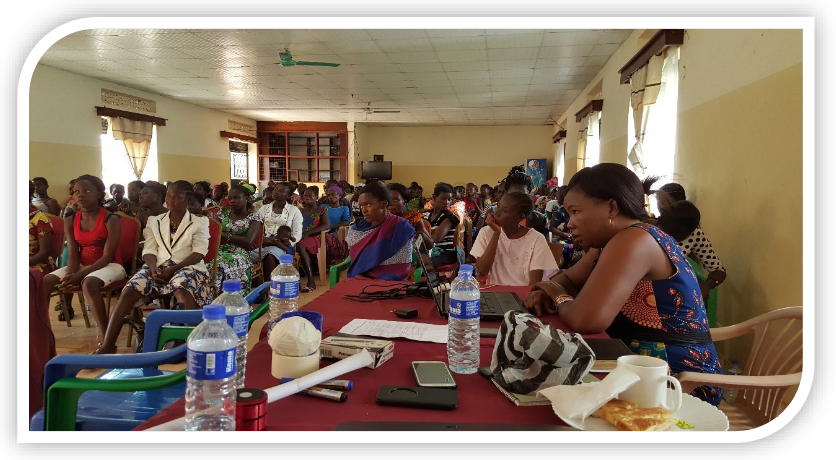
VISION;
A society where women are healthy, empowered and living harmony
A nation and a region of healthy women living in harmony, free from violence, discrimination, living their full potential and empowered to make decisions affecting their lives
MISSION;
NEPWU exist to promote the health, rights, meaningful and active participation of women and girls in south Sudan especially those living with and /or affected by HIV
NEPWU exists to promote the health, rights, meaningful and active participation of women and girls in South Sudan especially those living with and affected by HIV
Core program areas
Women and girls in South Sudan are more vulnerable to HIV
than their male counterparts due to biological factors, gender
imbalances, and lack of skills to negotiate safer sex, the
absence of sexual and reproductive health programs and
service, Sexual and gender-based violence. No strategic
advocacy interventions to improve a supportive social-
cultural environment and youth friendly services. NEPWU
was formed to address the issues highlighted above, the core
program areas include among others;
- Advocacy, Coordination, Partnership and Networking
- Positive Health Dignity and Prevention.
- Empowerment
- Human rights and Sexual Reproductive Health Rights.
Core Values
NEPWU is the only network of women and girls living with and affected by HIV, that is focusing on a strong community base service delivery, advocacy on rights, and empowerment. Some key areas of interventions include:
- Establishment of national, state and county forum for coordinating members, programs, service delivery and resource mobilization to achieve NEPWU’s mission statement.
- Lobbying and advocating for women’s’ participation in policy discussions, legislative reforms, HIV programming as well as to address the specific needs of women and girls living with and affected by HIV.
- Community program support and implementation to improve the health and social care of women, girls and children living with HIV and those directly affected by HIV, TB, Malaria
- Providing continuous follow up and psychosocial support to women enrolled for prevention of mother to child transmission (PMTCT) services and survivors of sexual and gender base violence through women community counsellors.
- Community mobilisation for uptake of HIV counselling and testing, and PMTCT services; and social support for treatment adherence and disclosure to reduce self-stigma among women and girls living with and affected by HIV; and provision of education on positive health dignity and prevention.
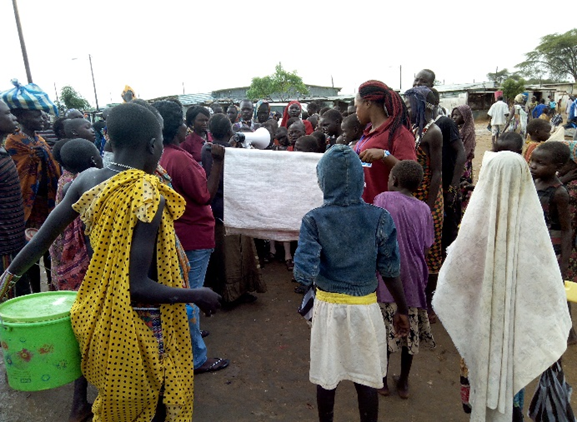
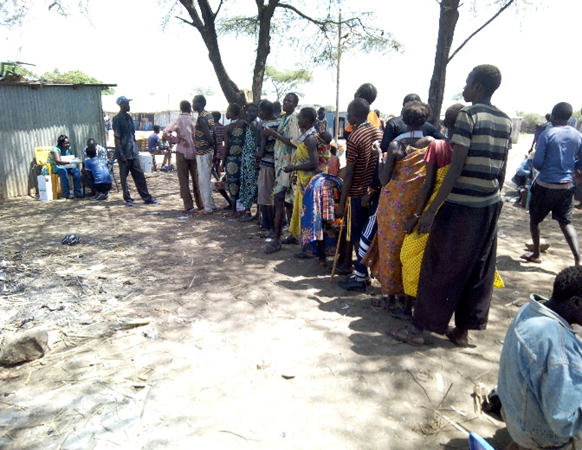
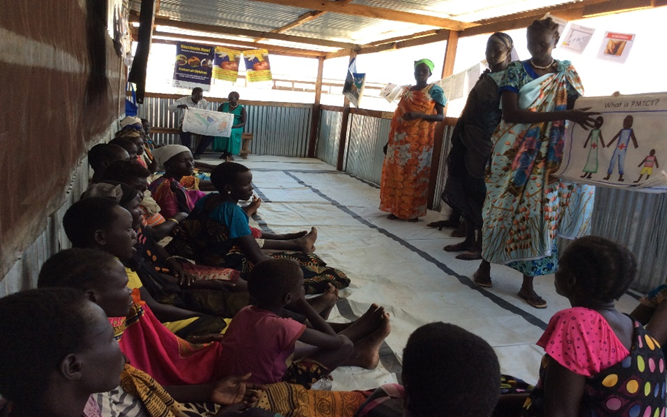
- Empowerment of women for meaningful and active participation in leadership and decision making in matters that affect them, including economic empowerment for long and productive lives.
- Uniting families and neighbors for peaceful co-existence
- Partnership and networking nationally and internationally with the aim of improving the lives of women and girls living with and affected by HIV.
NEPWU works in partnership with a number of national and community partners to implement her programs and is strongly aligned to the South Sudan Network of PLHIV (SSNeP+). NEPWU is also strongly supported by the South Sudan HIV/AIDS Commission (SSAC), who provides leadership and policy guidance; and UNAIDS, who provide strategic and technical support. MOH HIV Department technical guidance. A list of partners and donors is provided below.
Progress Observed;
Apart from specific program achievements, which can be provided upon request, NEPWU has been able to observe the following accomplishments:
- The spirit of unity and willingness to support and up lift each other in difficult circumstances.
- Voluntarism that has strengthened community support system for care and support for women, girls, orphans and vulnerable children.
- Reduced self-stigma among women and girls living with and affected by HIV, TB, Malaria and sexual Gender base violence
- Increased utilization of uptake of ANC, PMTCT, SRHR and HTS services.
- Changed behaviour to health seeking among the PLHIV and living positively.
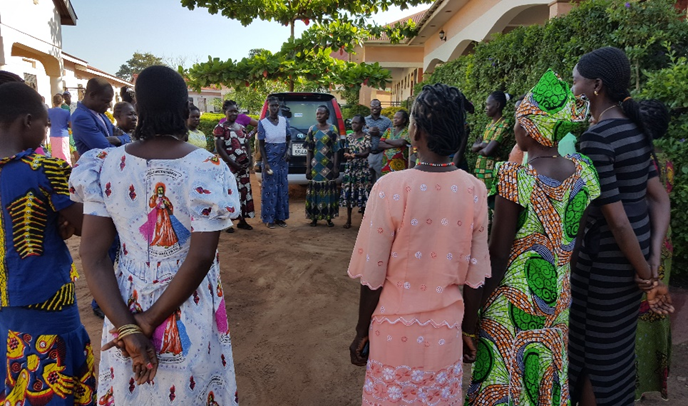
Challenges
- Limited knowledge on Advocacy, Human Rights and gender issues, peace building since our work encompasses all.
- No exposure to the countries that are mature in the related issues highlighted.
- Gender inequalities in service access and utilization, men always do not accept easily.
- Stigma and discrimination is great from all community and institutional sectors and this causes large numbers lost to follow up.
- Rampart Gender based violence which increases the risk of HIV infection and creates conflict among families.
- Poor adherence due to limited nutritional support.
- Limited funding, we are not able to cover all our locations.
- TB/HIV co-infection knowledge is low among the PLHIV. They are often discovered late.
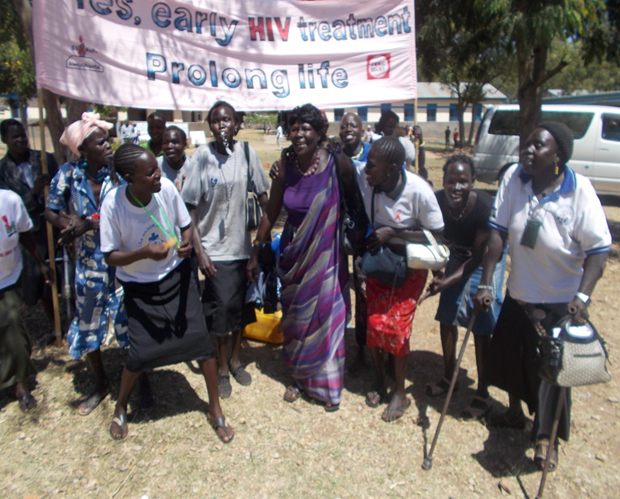
NEPWU Donors;
GLOBAL FUND, PEPFAR, USAID.
PARTNERS;
SSAC, MOH HIV DIV, MIN. GENDER &SOCIAL WELFARE
UNAIDS UN Women UN Cares IOM, IMA,
TEAR FUND, UNICEF , WORLD VISION, CRS, INTRAHEALTH, ICAP, JAPHEIGO, ART, WEA,
OXFAM
NEPWU IS A MEMBER OF; SSNeP+, NASOSS, PAPWC, NACWOLA, ICWEA, KENWA, STOP TB
PARTNERSHIP
We are united as one woman, one voice for a better solution”
Location:
South Sudan AIDS Commission Compound,
Jebel Kujur off Yei Road,
Email:nepwu14@gmail.com
Tel: +211 924360299/ +211 916636609 / +211 921643708
"Reaching Out: Community Heroes Serving in Flooded Areas to Restore Hope and Healing"
In a remote village along the banks of River Nile in South Sudan’s Lakes state, A 28-year-old Maria has become a beacon of hope in Minkaman-a community facing an ongoing crisis of flood. For the past two months, parts of the region have been submerged under devastating floodwater, affecting thousands of lives. As a trained peer counselor, Maria’s mission is simple but essential: to educate, support, advocate for change and empower her community in their health darkest times.
Maria’s role extended beyond just education—she became a bridge between the community (KPs) and humanitarian partners. As a Peer Educator, she worked closely with other local health workers and community leaders to ensure that recipientsof care in the most remote areas received psychosocial support, HIV prevention message and peer to peer counseling.
“Peer educators like Maria are invaluable in disaster-stricken areas,” said Mr. Paul, a health official working in the region. “They are trusted by the KPs, they understand the local dynamics, and they can communicate essential health information in ways that outsiders often can’t.”
In the face of overwhelming adversity, Maria’s work as a peer educator has made an indelible mark on her community. Her tireless efforts have not only helped reduce the spread of HIV among KPs by widening their knowledge on preventive measures and provided critical health support but have also fostered a sense of unity and hope.
As floodwaters slowly recede and the village begins the long process of rebuilding, Maria’s story serves as a reminder of the power of grassroots efforts. In times of disaster, it is often those closest to the crisis who are best positioned to bring about real, lasting change.
“Being a Peer Educator isn’t just a job,” Maria reflects. “It’s a responsibility to the specific community I serve, to ensure that we can survive and rebuild, no matter what challenges come our way.”.
Currently, NEPWU with support from Global fund through UNFPA is reaching Sex Workers and IDPs with HIV, TB, STIsand GBV prevention messages in Mingkaman County.

